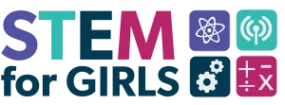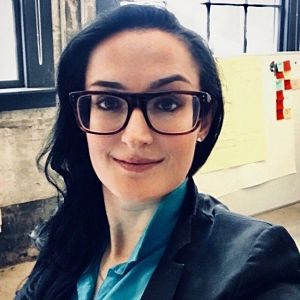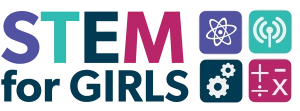What do you love most about your profession? Why did you choose this career?
I have had the opportunity to work on a really interesting mix of world-positive, purposeful projects with diverse clients and teams from many backgrounds. I have lived in 4 cities in 3 countries and have learned a lot. The products, services and experiences that I help design are used by millions of people worldwide. I really liked and excelled at subjects such as English and Music in school, but I also developed an interest and aptitude for computers, so I was excited to find an area of study and profession that allowed me to combine those skills and interests. I’m also a bit of an introvert and people watcher so it’s really interesting to me to be able to apply research and human behaviour studies in my work to influence positive changes and outcomes.
When did you realize you wanted to work in STEM or Skilled Trades?
I was accepted into a Computer Science degree in two well respected universities in Ireland, but I changed my mind to study Multimedia and Design (a Humanities and Social Sciences undergrad degree) instead, which still provided a foundation in coding/development but personally suited me better as I was able to learn about broader subject areas and gain skills in sociology, research, communications, storytelling, interactive media, project management, business and design. I started that degree was when I was 18, and went on to do a Master’s degree in Digital Media Technologies. I have reinvented myself a few times in my career and am always continuously learning and evolving. The best thing my degree gave me was the ability to learn and adapt as this industry can change a lot, and quickly.
Why do we need more women in STEM and Skilled Trades?
In some ways, the future of work is largely linked to STEM. Yet, women are significantly underrepresented in this industry. We need to close the gender gap. If she can see it, she can be it. What’s more, the inevitable reality of an AI-integrated workforce is coming. We also need diverse and inclusive representation from all people so that the world we are designing and building in the future has been considered for all. Did you know that an average adult female crash test dummy simply wasn’t designed/built, despite the fact that women obviously drive and are passengers in cars? That absence has set the course for four decades’ worth of car safety design, with deadly consequences. My work also involves ‘inclusive design’ – it’s so important.
What does your typical workday involve? Can you work remotely? (indoors/outdoors, office/plant, travel time, teamwork/solo work)?
I am a remote worker 90% of the time, which means that I mainly work from my home office, indoors at a sit-stand adjustable desk, collaborating with distributed teams and clients across Canada and the U.S. I also travel to clients for in-person meetings, workshop facilitation and stakeholder interviews, as well as strategic exercises, user research / customer observation and presentations. I do need to have ‘heads down’ time in my role so that would be when I work solo, but I also often collaborate with teams using online tools. I like the mix of working from home and travelling for in-person work, whether to a client in downtown St. John’s or to Halifax, Toronto, Vancouver and other places across Canada and the U.S.
Who is your role model? What is it about this person that inspires you?
My parents and my sister. We were raised to never believe that we were any less than others, regardless of gender, nationality, class or other differences. They instilled in us a curiosity, strong work ethic, integrity and empathy. They make time for family, prioritize what’s important in life, and are true to their values. My aunt also inspired me as she was the first woman I know working in computer science. I have had colleagues throughout my career that I’m very grateful for; those that have defined their own version of success. I look up to pioneers and leaders such as Susan Kare, Ada Lovelace, Lella Vignelli, Jacinda Ardern, Canada’s CMOs/Health leaders, former President of Ireland Mary Robinson, Katherine Johnson, Jane Goodall, Michelle Obama and Geena Davis. There are also many untold stories of great female inventors, pioneers, activists and trailblazers throughout history – look them up (e.g. herstory.ie).
What do you do for fun? What are some of your hobbies/activities?
I take photos. I like to be active and get outdoors – hiking, biking, snowboarding, and exploring/adventuring on the East Coast Trail with my partner and our dog. I like to play music, guitar, watch good films, and documentaries, and be creative when I can. I like to travel and learn new things. I volunteer for causes and initiatives that I believe in. I recently joined the Board of Directors for the St. John's International Women's Film Festival.
What advice would you give students who might be considering a career like yours? What advice would you have given your younger self?
Don’t try to please everyone or pay too much attention to what others seem to be doing or want you to do, pay attention to that voice inside instead and don’t be afraid to explore options – it’s your life after all. A career is a lifelong journey, there are no wrong paths, only experiences. Learn and try many things, keep an open mind, be kind and true to yourself, and you will do just fine. Don’t be too competitive, we need more collaborative people. Help someone because you can, particularly if you are in a position of privilege. Be authentic, find out what your strengths are and be patient as it may take some time. Finally, make sure to look after your work-life balance, health and your relationships – it’s important and you need that to be productive in your work.


